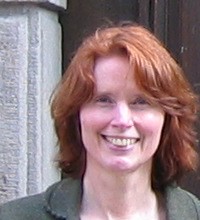We started class with a workshop on your literacy narratives. We reviewed the criteria for the essay as stated on the assignment sheet and created a list to guide you in assessing & providing feedback for your classmate's literacy narratives. You were divided in groups (each of you were to leave feedback for 3 or 4 of your classmates).
Groups
Michelle, Tim, Andrea, Deborah;
Aydin, Taylor, Math, Brian;
Karilyn Mario, Lana, Saran, Walmbi.
Please finish commenting to all your group members so everyone gets some feedback.
After you read for a while I interrupted you (as usual) and asked you what you were thinking (if anything) about your own essay. Most of you indicated that by reading your classmates' work (and from reviewing the requirements for the assignment) you now had some ideas about how to strengthen your essays - so we decided you could revise them.
We did some talking about what each of you thought you needed to do to strengthen your essays.
Some of the main areas for work were:
FOCUS
Finding or choosing a focus.
Choosing "stories" that are more relevant to and that develop the focus
Developing more discussion of how the stories connect to the focus
Making sure each paragraph of the essay developed that focus (in a slightly different way)
ORGANIZATION
Making sure the introduction sets up the focus - and that the conclusion comes back to that focus
Deciding on a logical organization - chronological, by theme, by "causality". . . so that one paragraph/literacy story leads to the next in a way that develops a coherent discussion of your focus
Creating transitions and connections between sections + paragraphs
DEVELOPMENT
Making sure to include details that "show" rather than "state" your points.
Including connections between your stories and your focus
We also discussed (briefly) some of the writing strategies you might use as you worked in each of these three areas for revision>
To find your focus:
- read what you have written and notice or underline repeating themes/words/ideas
- list the ideas in each paragraph in the margin
- if you don't find the focus you want in what you have written - freewrite, or do some focused freewriting where you develop material related to an idea that you like
- do some random listing or list ideas associated with one of the items on another list
- talk to someone about your ideas
- write about what you think you want to say (but promise yourself no one else will read this writing)
To work on organization:
- state the main point of each paragraph in your essay in the margin (you can move them around)
- make an outline
- say your essay aloud to yourself and write down the main points in the order you say them
- list all the points you want to include - then move them around
DEVELOPMENT
- freewrite or do some association for the places where you need more material
- talk to someone about what you've written
- list materials you might use to develop a particular section
- surf the net or read material that might give you ideas
For this weekend - take a break from this essay. I will give you some feedback on Monday, and the revised essays will be due a week from Monday = March 1.
We spent the rest of class talking about "The Ethnography of Literacy". The main point was that we cannot make useful generalizations about what literacy is or how it works without considering the texts, contexts, functions, participants, and motivations that are involved. Szwed emphasizes that there is no single way to write or to learn to write, and that we need to study the multiple ways of reading and writing within the contexts where they take place.
We then considered how theories about reading and writing (our assumptions about how it is defined, practiced, and evaluated) influence educational and political practices.
For Monday:
Read: Elbow, Introduction (xi - xxxi) + the first chapter on freewriting (1-11).
Blog 9: What are Elbow's assumptions about what writing is and how it works?
Friday, February 19, 2010
Subscribe to:
Post Comments (Atom)

No comments:
Post a Comment